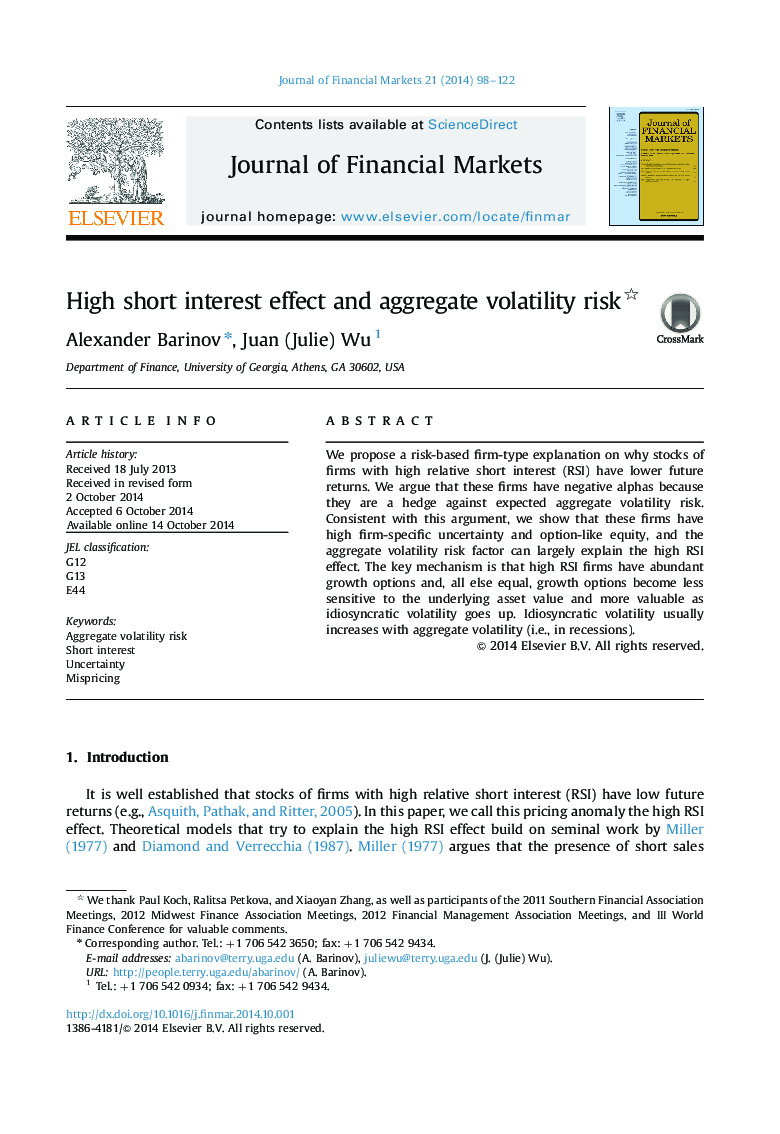| Article ID | Journal | Published Year | Pages | File Type |
|---|---|---|---|---|
| 960983 | Journal of Financial Markets | 2014 | 25 Pages |
Abstract
We propose a risk-based firm-type explanation on why stocks of firms with high relative short interest (RSI) have lower future returns. We argue that these firms have negative alphas because they are a hedge against expected aggregate volatility risk. Consistent with this argument, we show that these firms have high firm-specific uncertainty and option-like equity, and the aggregate volatility risk factor can largely explain the high RSI effect. The key mechanism is that high RSI firms have abundant growth options and, all else equal, growth options become less sensitive to the underlying asset value and more valuable as idiosyncratic volatility goes up. Idiosyncratic volatility usually increases with aggregate volatility (i.e., in recessions).
Related Topics
Social Sciences and Humanities
Economics, Econometrics and Finance
Economics and Econometrics
Authors
Alexander Barinov, Juan (Julie) Wu,
